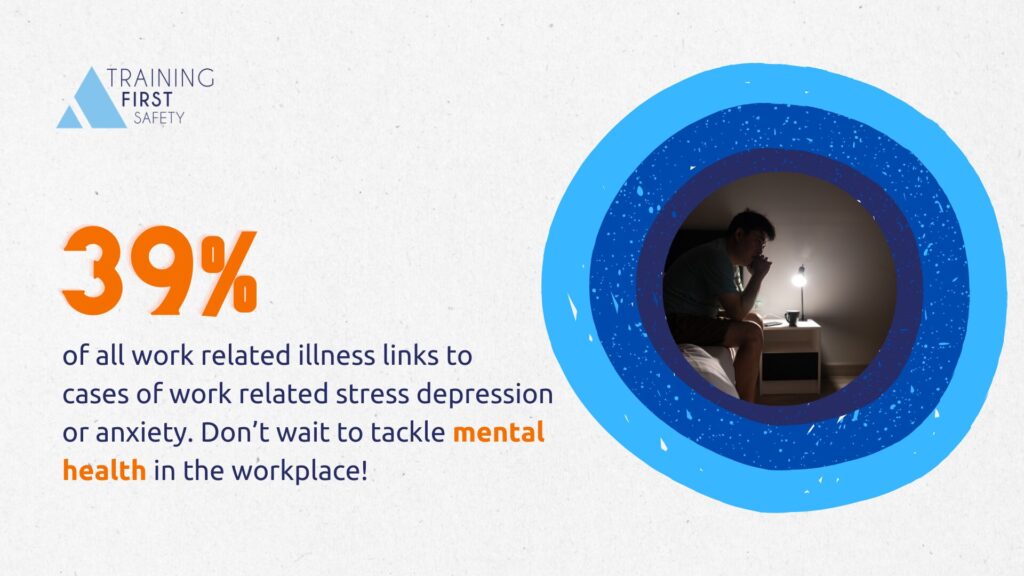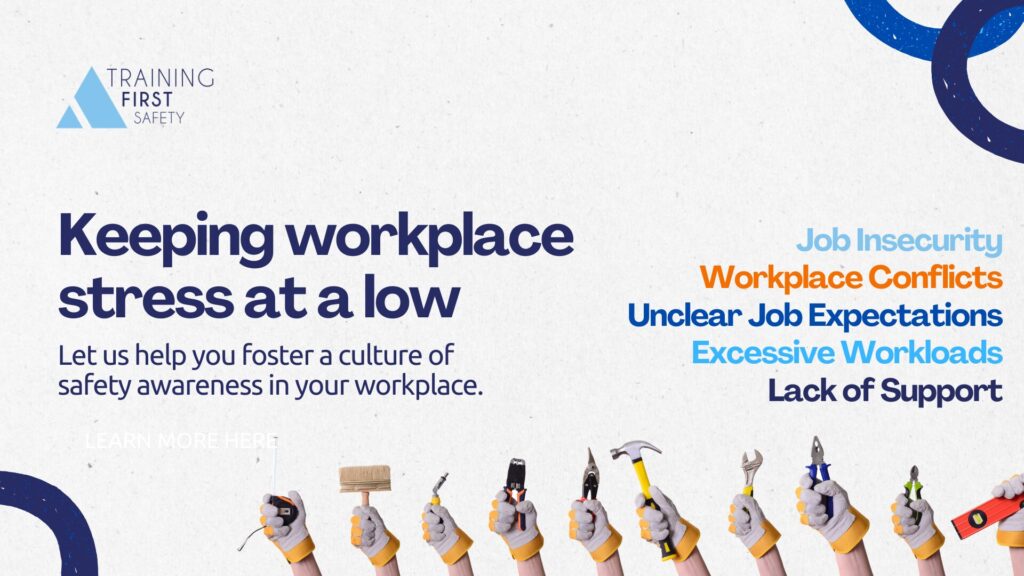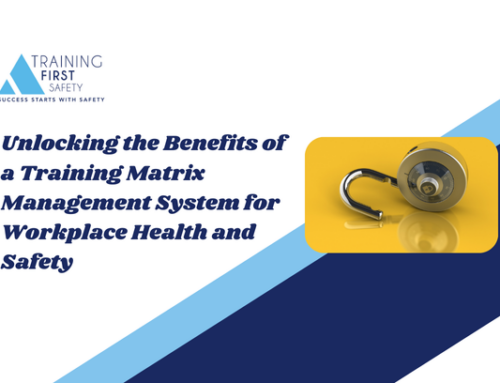Stress Awareness Month #Littlebylittle
April marks Stress Awareness Month, an annual event that shines a spotlight on the pervasive issue of stress and its impact on our lives. The theme for Stress Awareness Month 2024 centres around the power of taking small, positive actions towards enhancing our mental health and wellbeing. This principle could not be timelier for businesses across the UK, particularly within the construction and manufacturing sectors, where the demands and pressures of the workplace can significantly contribute to employees’ stress levels.
Understanding Workplace Stress
In industries known for their rigorous schedules and high-risk environments, like construction and manufacturing, employees often face a unique set of stressors. Tight project deadlines, safety concerns, and the physical demands of the job can lead to heightened stress levels, negatively affecting mental health and overall productivity.
Recognising the signs of stress is the first step towards managing it effectively. Common indicators include changes in behaviour, such as increased irritability or withdrawal, difficulties in concentrating, and physical symptoms like headaches or changes in sleep patterns. These signals, if unaddressed, can lead to more severe health issues, underscoring the importance of proactive stress management.
Understanding Stress: A Scientific Perspective
Stress, in scientific terms, is the body’s response to pressures from a situation or life event. What contributes to stress can vary immensely from person to person and differs according to our social and economic circumstances, the environment we live in, and our genetic makeup. In response to these pressures, the body releases a mixture of hormones and chemicals such as adrenaline, cortisol, and norepinephrine to prepare the body for physical action. This can result in a variety of reactions, from heightened awareness, quickened breathing and heart rate, to muscle tension. While a certain level of stress can be beneficial for motivation and performance, prolonged stress can lead to significant health issues, including mental health problems like anxiety and depression, cardiovascular diseases, and immune system disorders.
The Impact of Stress: By The Numbers
Recent statistics highlight the pressing need for effective stress management strategies within the workplace. According to the Health and Safety Executive (HSE) in the UK, 17.9 million working days were lost due to work-related stress, depression or anxiety in 2019/20. Furthermore, stress accounted for 51% of all work-related ill health cases and 55% of all working days lost due to work-related ill health. These figures underscore the widespread nature of stress within the workforce and the critical importance of addressing it.
Personal Lives in the Balance
The ramifications of unmanaged stress extend far beyond the workplace, affecting individuals’ personal lives and their interactions with family and friends. High levels of stress can strain relationships, contribute to substance abuse as a coping mechanism, and decrease the quality of life. It can also lead to physical health issues, such as high blood pressure, heart disease, and obesity. By neglecting the signs of stress, individuals risk letting these repercussions spiral, leading to long-term health concerns that could have been mitigated with timely intervention.
The Business Case for Stress Management
For businesses, the consequences of not addressing employee stress are manifold. Apart from the direct financial losses stemming from absenteeism and presenteeism, unmanaged stress can erode workplace morale, reduce productivity, and impair team dynamics. Furthermore, it can heighten workplace accident rates, particularly in industries like construction and manufacturing where safety is paramount. In the longer term, businesses may face increased healthcare costs, higher staff turnover, and potential damage to their reputation. Investing in stress management not only bolsters employee wellbeing but also serves the company’s bottom line by fostering a healthier, more engaged, and productive workforce.

Practical Steps to Reduce Stress
1.Prioritise Self-Care and Mindfulness
Encouraging employees to engage in regular self-care activities can make a substantial difference in managing stress levels. Simple actions, such as ensuring adequate rest, maintaining a balanced diet, and engaging in physical activity, are foundational elements of effective stress management.
Mindfulness techniques, including meditation and deep-breathing exercises, offer another practical tool for reducing stress. By training the mind to focus on the present moment, individuals can break the cycle of perpetual worry and reduce overall stress levels.
-
Create an Open Dialogue about Mental Health
Creating an environment where mental health is openly discussed can significantly reduce stigma and encourage employees to seek help when needed. This can be facilitated through regular mental health awareness sessions, workshops, or by inviting mental health professionals to speak to staff. Ensuring that senior leadership endorses these initiatives can further highlight their importance within the company culture. Access our Stress Awareness Toolbox Talk here.
-
Implement Flexible Working Arrangements
Flexibility can play a crucial role in reducing stress, particularly for employees who may be juggling personal responsibilities alongside their work commitments. Options such as flexible working hours, the opportunity to work from home, and considerations for personal leave can make a substantial difference in managing work-life balance.
-
Provide Access to Mental Health Resources and Support
Businesses can enhance their support by offering access to mental health resources and services. This includes providing an Employee Assistance Programme (EAP) that offers counselling and mental health support, creating a resource library of self-help materials, and compiling a list of external mental health services and hotlines.
-
Encourage Regular Breaks and Downtime
Encouraging employees to take regular breaks during the workday can help prevent burnout and reduce stress. This might involve enforcing lunch breaks away from the desk, creating quiet spaces within the workplace where employees can relax, or organising regular team outings to promote relaxation and team bonding.
-
Promote Physical Wellbeing
Physical health is closely linked to mental wellbeing. Employers can support their employees’ physical health by providing on-site fitness facilities, subsidising gym memberships, organising group exercise classes, or initiating ‘walk and talk’ meetings. Encouraging a healthy lifestyle can contribute significantly to reducing stress levels.
-
Train Managers to Recognise and Address Stress
Managers play a key role in identifying and mitigating stress within their teams. Providing training on how to recognise the signs of stress, how to have supportive conversations with team members, and how to adjust workloads or deadlines where necessary, can equip managers with the tools they need to effectively support their staff.
-
Review Workloads and Job Design
Regularly reviewing employees’ workloads and job roles can identify sources of stress and areas for improvement. This might involve redistributing tasks to ensure a fair workload, adjusting roles to better match individual strengths and interests, or implementing job rotation to provide variety and reduce monotony.
-
Establish a Stress Management Policy
Having a formal stress management policy in place can demonstrate a business’s commitment to tackling stress. This policy should outline the steps the organisation will take to prevent excessive stress, how to access support services, and the process for addressing workplace issues contributing to stress.
By adopting these strategies, businesses can create a more supportive and understanding work environment that actively seeks to reduce stress. Implementing such initiatives not only benefits employees by enhancing their mental wellbeing and job satisfaction but also serves the company by improving productivity, reducing absenteeism, and fostering a positive workplace culture.
Health and Safety Training
Health and safety training providers play a critical role in supporting mental wellbeing in the workplace. Beyond traditional focus areas, these programmes can be expanded to include stress management training, equipping employees with the knowledge and skills to recognise and address stress in themselves and others.
Training can cover a range of topics, from identifying stress triggers to implementing practical coping strategies, such as time management techniques and relaxation exercises. By integrating these elements into health and safety training, businesses can ensure a more holistic approach to employee wellbeing.
Resources for Stress Reduction
There are numerous resources available to companies and employees seeking to reduce stress in the workplace. Mental health charities and organisations, such as Mind and the Mental Health Foundation, offer a wealth of online materials, including guides and toolkits specifically designed for workplace wellbeing.
In addition, Employee Assistance Programmes (EAPs) provide a confidential resource for employees to access professional support services, including counselling and advice on managing stress.

Conclusion
In recognising the significance of Stress Awareness Month 2024 and its theme, are presented with a timely opportunity to re-evaluate their approach to stress management. By understanding the common stressors faced by employees, recognising the signs of stress, and implementing practical strategies for stress reduction, companies can support their workforce in maintaining optimal mental health.
Taking small, positive actions towards self-care and mindfulness can lead to significant improvements in wellbeing, enhancing both individual lives and the broader workplace environment. Through education, awareness, and the provision of appropriate resources, businesses can contribute to a healthier, more productive workforce, ready to face the challenges of today’s demanding work landscapes.
Check out our Stress Awareness Toolbox Talk






